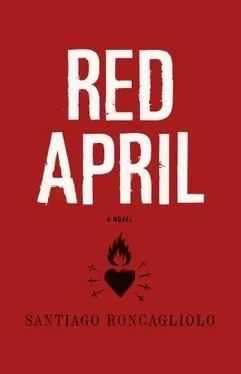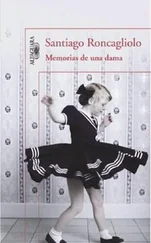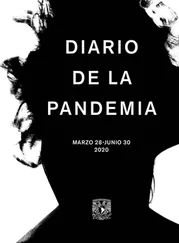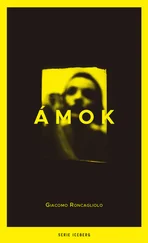“No. They're pretty calm today.”
One of the police burrowed beneath his sheets. Aramayo said:
“I don't think there are any dogs today. At the most some graffiti. Tomorrow we'll have to go out early to wash them off. Your buddy Carrión is coming to visit us.”
Chacaltana felt a flash of relief. He said:
“Excellent. The high command should know what is going on …”
Aramayo interrupted him with a laugh.
It seemed to Chacaltana that his laughter was morbid. With his back still turned to the prosecutor, the lieutenant said:
“The high command doesn't see us, Señor Chacaltana. We're invisible. Besides, the command doesn't command. Lima's in charge here. And the guys in Lima won't find out there's a war until they get a bullet up the ass.”
He walked heavily to his mattress. He put the bottle to one side and lay down.
“But don't worry, Señor Chacaltana,” he said with a yawn. “They'll realize it sooner or later. And they'll come, naturally they'll come. They'll send commissions, members of congress, reporters, military men, they'll put up a monument to peace … The only problem is that for this to happen, we'll all have to be dead.”
No one else spoke that night. The prosecutor curled up beside the door. He did not have the strength to move. He heard the volume and frequency of the shouts gradually diminish. Hours later, when sleep overcame him, the hammer and sickle were still burning in the mountains.
He opened his eyes. The police station was empty and the sun filtered in through a window over his head. His body ached, and he needed a shower. He rubbed his face to get rid of the sleep in his eyes and shake off his drowsiness. As he was trying to comb his hair, trying to see his reflection in the window, Aramayo came in:
“Good morning, Señor Prosecutor, did you sleep well?”
“It's not funny, Aramayo.”
Aramayo laughed, displaying his missing canines.
“Carrión's in the village. Poor Yupanqui had to climb the mountain to get rid of the remains of the bonfires. The others have spent the morning painting the walls. You'll see how pretty the village looks. Like Miami.”
He handed him a basin of cold water so he could wash his face. The prosecutor missed his toothbrush. He said:
“I have to speak with the commander.”
“The elections are tomorrow, so you won't have to spend many more bad nights. You can go back tomorrow night with the military transports carrying the urns.”
The prosecutor dried his face with his shirtsleeves and said:
“I am not the point. Somebody has to tell the commander what happened. Before they kill everybody.”
He looked at himself again in the window glass. He seemed a little more presentable. He walked to the door. Before he stepped outside, the lieutenant blocked his way with his arm.
“Don't tell them anything, Señor Prosecutor.”
“What? You need reinforcements. You have to immediately ask for …”
“There's nothing to ask for.”
“Let me try. The commander will understand.”
“The security of this village is my responsibility. If you complain to the high command you'll make a problem for me.”
“You already have a problem, Lieutenant. Didn't you notice that last night?”
He had to push away the lieutenant's arm in order to pass. The lieutenant looked as if he were about to speak again, but the prosecutor's eyes dissuaded him. As he was going out, Chacaltana heard the policeman's voice behind him.
“You don't know what a real problem is, Chacaltana.”
He did not want to hear him. When he walked out, he recognized the smell of fresh paint on some facades. Under the yellow, green, and white colors, the slogans in red paint were still visible. He looked for Carrión. His presence was felt in the number of armed soldiers walking the streets and standing guard at the corners. On the square were the jeep and the truck that had brought them here. Wherever the greatest density of soldiers was, that is where Carrión would be. And the greatest density of soldiers was in the National Office of Electoral Processes, where the commander was talking to Johnatan Cahuide. The prosecutor did not need to identify himself to approach them, and they greeted him with the remains of a breakfast and smiles. Carrión said in good humor:
“Dear little Chacaltita, my trustworthy man! Have some coffee.”
“Commander, we have to talk, Señor.”
“Of course. Johnatan Cahuide has been telling me about your efficient and meticulous work …”
“We have to talk about that too. I have reason to believe that certain prominent members of the military in this zone are preparing a fraud behind your back.”
Carrión's smile suddenly froze. Cahuide gulped. The commander put his cup down on the table and shifted in his chair.
“What did you say?”
“It is true. Perhaps a training course in democratic values is necessary for members of the armed forces who …”
“There you go again with training courses, Chacaltana, what a pest you are.”
“There are indications that …”
“Chacaltana …”
“The soldiers are campaigning in favor of the government …”
“Chacaltana …”
“Even coercing the vote of the peasants …”
“Chacaltana, damn it!”
They were silent. Carrión got up from his chair. Johnatan Cahuide looked at the prosecutor in terror. Carrión shouted at two soldiers in the doorway to get out, and he closed the door. Then he sat down. He let a few seconds go by while he calmed down.
“What are you doing, Chacaltana?”
“Presenting an oral report, Señor,” the prosecutor replied, surprised at the question.
At that moment the door opened and in came the functionary with the sky-blue tie whom Chacaltana had seen next to Carrión on the day of the parade. He was wearing the same tie and a badly pressed suit. The commander introduced him as Dr. Carlos Martín Eléspuru. With almost no voice, the man gave a somber greeting and sat in another chair. He poured some coffee. The prosecutor was still standing. Carrión had regained his composure and brought the newcomer up to date.
“Prosecutor Chacaltana has been … alarmed at the alleged behavior of some soldiers in the elections. Where did you get this information, Señor Prosecutor?”
Chacaltana looked at Cahuide, who gave him a pleading glance.
“Statements by the residents, Señor,” he replied.
Carrión put on that paternal smile again.
“Please, my dear Chacaltana, the residents can't even speak Spanish. I don't know what they tried to tell you, but don't worry about it.”
“Excuse me, Señor, but in elections …”
Carrión interrupted him:
“The people here don't give a shit about the elections, don't you know that?”
“But the fact is that according to the law …”
“What law? There's no law here. Do you think you're in Lima? Please …”
Carrión sat down. The man in the sky-blue tie passed him a paper, which the commander read calmly. They began to talk quietly. They seemed to have forgotten about the prosecutor. Chacaltana cleared his throat. They continued, not looking at him. Chacaltana had the impression that they did not want to look at anything else either, not anything that was real, not anything standing beside them, clearing his throat. He made a decision and spoke:
“Permit me to say, in that case, I do not understand what my function here is.”
Eléspuru and the commander stopped reviewing their papers. Carrión looked as if he were summoning all his patience in order to respond:
“Reporters will come to fuck over the armed forces. You have come to defend us. You can go.”
Eléspuru, as if he were thinking of something else, poured himself more coffee. He looked at the prosecutor. Chacaltana decided to say everything once and for all, make a last-ditch stand, the way heroes did:
Читать дальше












